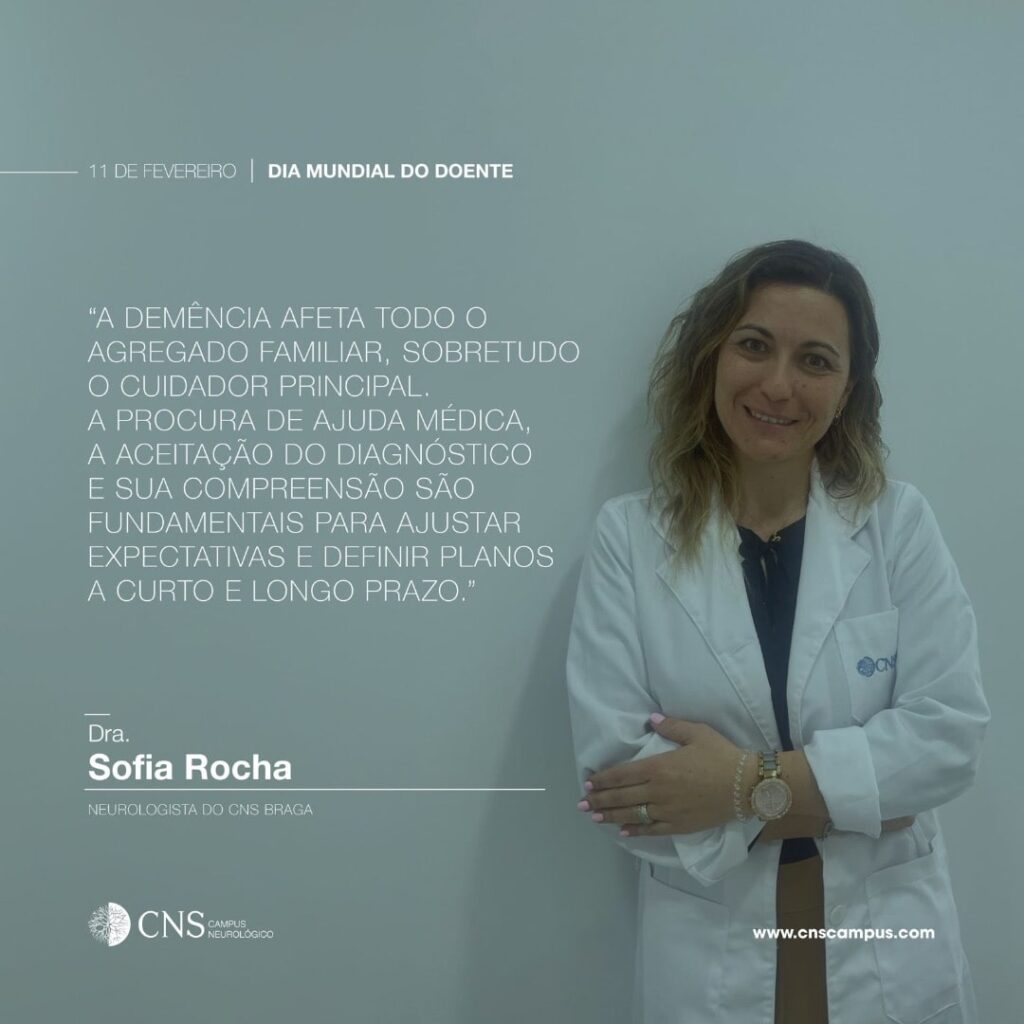To mark World Patient Day, which this year has the theme: “It is not good for man to be alone,” we share an article by Dr. Sofia Rocha, Neurologist at CNS Braga, on the importance of the role of caregivers in dementia.
Dementia, a disruption of multiple cognitive domains including memory, with a loss of individual autonomy, is a very common condition and tends to become even more common. It is estimated that, above the age of 60, there are about 40 million people with dementia worldwide, and it is predicted that this number will double every 20 years until 2050.
Alzheimer’s disease, the leading cause of dementia, presents with memory loss (especially recent memory), disorientation in time and space, difficulty recognizing people, and language alteration. It is a degenerative, progressive disease and, as of now, incurable.
For the diagnosis of these pathologies, the clinical history reported and/or confirmed by the caregiver is fundamental and implies the exclusion of treatable causes. For this purpose, and also for a better characterization of the dementia syndrome, we resort to some complementary diagnostic tests such as blood tests, CT scans or MRI, neuropsychological assessment, electroencephalogram, and in some cases, lumbar puncture and PET.
Dementia affects the entire family, especially the primary caregiver. Seeking medical help, accepting the diagnosis, and understanding it are crucial to adjust expectations and define short and long-term plans. It is not uncommon for the caregiver to need to change their work habits, hobbies, and even residence in order to provide support. In the early stages, the caregiver is forced to prevent the patient, especially for their safety, from continuing to perform certain tasks (driving, cooking, managing medication, controlling bank accounts), which is not always well-received. In intermediate stages, difficulties change, and the caregiver faces needs such as hygiene, dressing, continence, meal preparation, and orientation in time and space. It is mostly at this stage that problems related to behavior control and insomnia arise. The healthcare professional plays a crucial role in pharmacological adjustment and in conveying strategies to minimize periods of confusion and agitation – maintaining a calm environment, with well-defined habits/schedules, adequate lighting, and a compassionate attitude. In the final stages of the disease, mobility problems and difficulty swallowing liquids and food are added.
Caregiver exhaustion must be diagnosed, accepted, and addressed early. Given the well-known aging of the population, the high prevalence of this disease represents a significant social, economic, and emotional burden. We must, therefore, be aware of some strategies that can help prevent cognitive deterioration at all ages: moderate-intensity aerobic physical exercise; control of risk factors for vascular disease such as hypertension, cholesterol, diabetes, and overweight; avoiding smoking; healthy diet; effective sleep; treating obstructive sleep apnea syndrome; avoiding stress and depressive symptoms; correcting vision and hearing; socializing and staying cognitively active.
Dr. Sofia Rocha
Neurologist
Specialist in Alzheimer’s disease and other dementias
